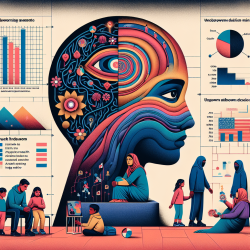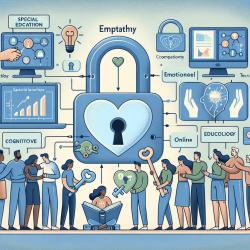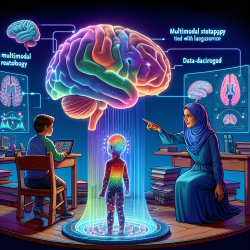The diagnostic journey for developmental coordination disorder (DCD) can be a challenging and stressful experience for families. The recent study, "The diagnostic trajectory of developmental coordination disorder in the Netherlands: Experiences of mothers," provides valuable insights that can help practitioners improve their approach to diagnosing and supporting children with DCD. This blog will explore the key findings from the study and offer actionable steps for practitioners to enhance their skills and provide better outcomes for children and their families.
Understanding the Diagnostic Trajectory
The study involved mothers of 60 children with a DCD diagnosis who completed an online survey about their experiences during and after the diagnostic process. The findings highlighted several critical areas where improvements can be made:
- Stressful Diagnostic Process: 40% of mothers found the diagnostic process stressful.
- Lack of Knowledge: 47% felt that the first professional they consulted had no or just superficial knowledge about DCD.
- Insufficient School Support: 60% reported a lack of knowledge and support at their child's school post-diagnosis.
Despite these challenges, the majority of mothers were satisfied with the diagnostic trajectory. The study found that higher satisfaction was linked to the professionalism of the diagnosing practitioner and the quality of post-diagnostic support.
Actionable Steps for Practitioners
Based on these findings, here are some evidence-based recommendations for practitioners:
- Enhance Knowledge and Training: Practitioners, including general practitioners, pediatric physical therapists, and youth healthcare physicians, should seek continuous education on DCD. This includes understanding its symptoms, diagnostic criteria, and effective intervention strategies.
- Improve Communication: Clear and empathetic communication with parents is crucial. Ensure that parents fully understand the diagnostic process, the implications of a DCD diagnosis, and the available support options.
- Collaborate with Schools: Work closely with schools to ensure they have the necessary knowledge and resources to support children with DCD. This may involve providing training for teachers and school staff on DCD and its impact on learning and daily activities.
- Provide Comprehensive Support: Offer a holistic approach to post-diagnostic support, including referrals to occupational therapists, physical therapists, and other relevant professionals. Ensure that families have access to resources and support groups.
Encouraging Further Research
The study underscores the importance of continued research in the field of DCD. Practitioners are encouraged to stay informed about the latest research findings and integrate evidence-based practices into their work. Additionally, engaging in research activities, such as conducting surveys or participating in clinical studies, can contribute to the broader understanding of DCD and improve diagnostic and intervention strategies.
To read the original research paper, please follow this link: The diagnostic trajectory of developmental coordination disorder in the Netherlands: Experiences of mothers.










